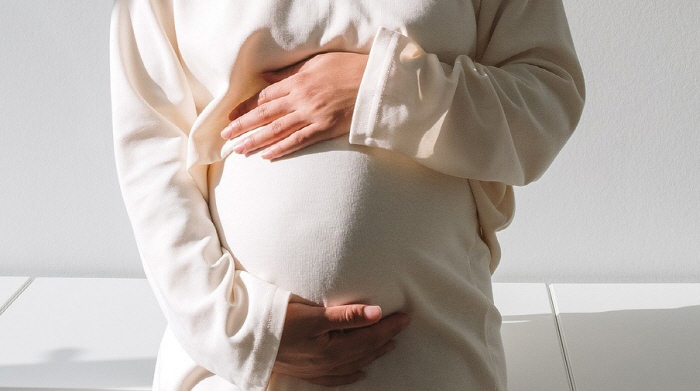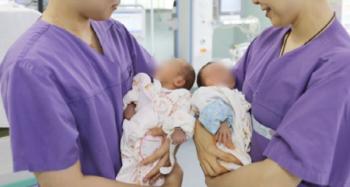Dangerous Pregnancy Poisoning for Mothers and Infants...If you're 35 years old or older, you're at risk
Apr 29, 2025
|
Pregnancy poisoning is a different term for electronic liver disease/self-infection, and refers to a disease that is accompanied by damage to various organs, including kidney damage, as blood pressure suddenly rises after 20 weeks of pregnancy. In particular, the number of elderly mothers has recently increased, and the number of pregnancy poisoning patients is expected to continue to increase as the possibility of pregnancy with various underlying diseases increases when pregnant at an old age.
Since pregnancy poisoning can cause serious complications for both mothers and fetuses and can lead to death, careful diagnosis, follow-up, rapid treatment, and long-term health care after delivery are essential.
◇ Headache, solar plexus pain, visual impairment symptoms…high blood pressure and proteinuria
Symptoms of pregnancy poisoning include elevated blood pressure, foamuria, headache, epigastric pain, and vision impairment. If the body fluid caused by pregnancy poisoning remains in the body, swelling becomes severe, and the weight increases rapidly by more than 1kg per week, it is important to check for pregnancy poisoning. Weight is measured at each treatment during pregnancy to detect pregnancy poisoning early.
High blood pressure and proteinuria are the representative indicators for diagnosing pregnancy addiction. A mother who did not have high blood pressure before pregnancy is diagnosed with pregnancy poisoning if she develops new high blood pressure after 20 weeks of pregnancy and proteinuria, an indicator of kidney damage, is accompanied. Hypertension referred to here refers to a case where the systolic blood pressure is 140 mmHg or higher, or the diastolic blood pressure is 90 mmHg or higher.
Proteinuria is accompanied in most pregnancy poisoning, but even if it is not accompanied by proteinuria, it is diagnosed as severe pregnancy poisoning even if the systolic blood pressure exceeds 160mmHg or diastolic blood pressure exceeds 110mmHg, thrombocytopenia, severe increase in hepatic enzyme levels, severe upper stomach or solar plexus pain without any other cause, increased kidney levels, new headaches that do not work in painkillers, etc. In this case, it is diagnosed as severe pregnancy poisoning, and in this case, it is an emergency and should be treated quickly.
◇In severe cases, cramps, brain damage, kidney damage, risk of death...even non-specific symptoms
The clear cause of pregnancy poisoning has not yet been identified, so many researchers are still actively studying it. Various causes are thought to work in combination, but the mother's immune response to a kind of fetus is considered one cause.
Professor Jo Geum-jun "In the early stages of pregnancy addiction, there may be no singularity in the symptoms felt by the patient, but the rapid progression to severe disease can put the fetus and mother at great risk. "Pregnancy poisoning can rapidly progress to severe complications at any time, even if there are no symptoms at the moment, so if the medical staff recommends hospitalization, it is recommended to be hospitalized."
The most serious complication that can occur in patients with pregnancy addiction is narcissism, or convulsions. When convulsions occur, the mother can die, and permanent brain damage can occur. Convulsions appear before delivery, but they can also appear during or after delivery. Symptoms such as severe headaches, blurred vision, glare, and confusion of consciousness may occur first before convulsions begin, so if these symptoms appear, the medical staff should be notified immediately. In many cases, convulsions may appear suddenly without precursor symptoms. The second most serious complication after convulsions is 'HELLP syndrome', which also deteriorates the mother's health and can lead to death in severe cases. HELLP syndrome refers to a condition in which hemoglobin is released into plasma due to the destruction of red blood cells, increased hepatic enzyme levels, and platelets are reduced, and it is known that 15% of all patients with pregnancy poisoning start nonspecifically from HELLP syndrome without high blood pressure and proteinuria. 90% of mothers with HELLP syndrome complain of right upper abdominal pain and general fatigue.
Professor Jo Geum-jun "Severe pregnancy poisoning can lead to acute or long-term sequelae. There are pulmonary edema, myocardial infarction, cerebral hemorrhage, blood clotting abnormalities, acute respiratory failure syndrome, and renal dysfunction, and these sequelae are more likely to occur if the organ has already been diseased before pregnancy, so caution is needed.
◇ Delay in fetal growth, premature detachment of placenta may occur...In principle, the treatment is delivery
Although growth delay does not occur in the fetus of all patients with pregnancy poisoning, there is also pregnancy poisoning that is mainly caused by fetal symptoms. Blood flow to the placenta is reduced, and the placenta is necrotic, reducing the supply of oxygen and nutrients to the fetus, resulting in a decrease in the growth of the fetus. When the fetus's condition worsens, the amount of urine in the fetus decreases. Since amniotic fluid is the urine of the fetus, the amount of amniotic fluid decreases. In some cases, premature detachment of the placenta may occur as the spiral artery that sends blood from the uterus to the placenta ruptures.
Since pregnancy poisoning is a disease caused by the placenta, the most principled way to treat pregnancy poisoning is delivery. However, it is not possible to deliver quickly before long-term maturity of the fetus is achieved in the early weeks. Increasing the number of gestational weeks is the basic goal, but the final delivery time is determined by balancing the severity of the pregnant woman and the risk of the fetus following early birth.
◇ High-risk groups with underlying diseases such as high blood pressure and diabetes...35 years of age or older, risk of acetic acidity
In the case of primiparous birth, the mother's age is 35 or older, or the BMI is 30 or more before pregnancy, if there is a family history of pregnancy addiction, if there has been a previous delivery of a low-weight child, it is considered pregnancy addiction 'moderate risk group', and in this case, pregnancy addiction is more likely to occur than ordinary mothers. Professor Cho Ki-joon said, `Recently, many mothers are over 35 years old, so there is a risk of pregnancy poisoning. It is also important for all pregnant women to be aware because sometimes pregnancy poisoning can occur without these risk factors.
Those who have had pregnancy addiction in the previous pregnancy, have high blood pressure, diabetes, kidney disease, and autoimmune diseases before pregnancy are at high risk for pregnancy addiction. Mothers with gastric risk factors need careful attention from the beginning and professional counseling with an obstetrician.
◇ Early aspirin prophylactic administration...Risk of cardiovascular disease after delivery
High-risk pregnant women with two or more middle-risk factors or 'high-risk factors' begin administering low-dose aspirin between 12 and 28 weeks of pregnancy and can reduce the incidence of pregnancy addiction or reduce various damage and mortality rates even if pregnancy addiction occurs. Therefore, it is very important for mothers with the above risk factors to discuss preventive aspirin administration with an obstetrician.
Professor Jom Ki-jun "After delivery, blood pressure is often gradually returned to normal. However, mothers who have developed pregnancy poisoning need continuous observation and management after delivery because the risk of cardiovascular disease increases for several years after delivery. The risk of developing high blood pressure, myocardial infarction, congestive heart failure, stroke, and peripheral artery disease increases, and if you have severe symptoms of pregnancy poisoning, the risk increases. Therefore, it is essential for mothers who have developed pregnancy addiction to maintain a healthy weight, exercise, quit smoking, and follow-up on cardiovascular diseases after delivery.
|
This article was translated by Naver AI translator.















